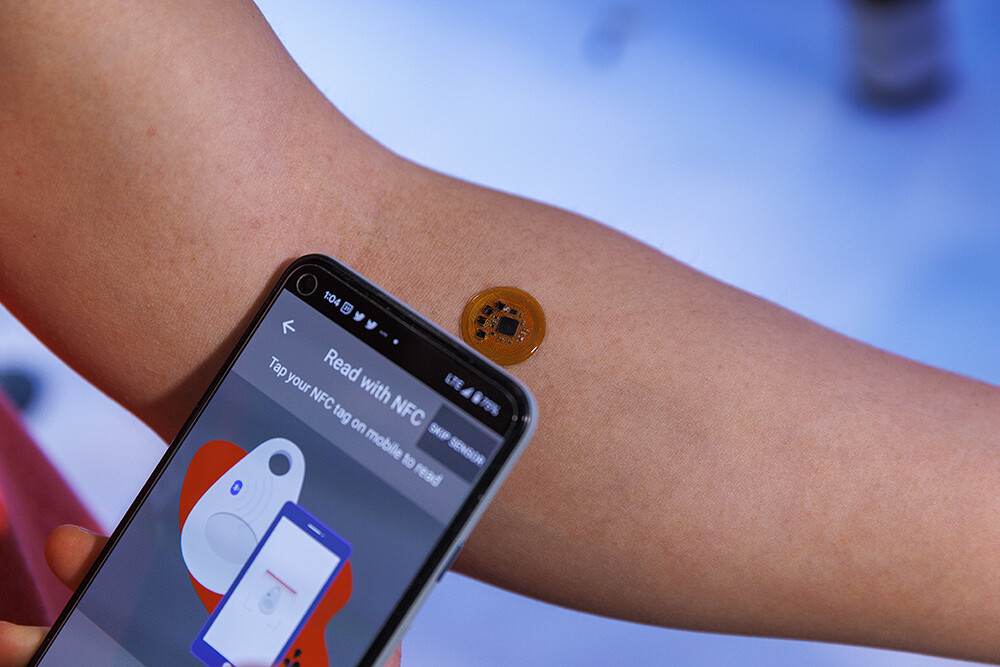A team of Nebraska Engineering researchers was chosen as one of three winners at the DMD 5MP (five-minute pitch) Competition at the Design of Medical Devices Conference, April 13 and 14 in Minneapolis, Minnesota, for their presentation, “Wireless, Battery Free Wearable Electronic Nose.”
The electronic nose is a sensing device that can detect and identify volatile organic compounds that are excreted through human skin or exhaled breath.
The Nebraska Engineering team included Eric Markvicka, assistant professor of mechanical and materials engineering; graduate student Jason Finnegan; and undergraduate students Bridget Peterkin and Hee-Chan Han. All are a part of Markvicka’s Smart Materials and Robotics Lab. The team, which also included Stephen Rennard, professor of pulmonoary research at University of Nebraska Medical Center, and Jennifer Yentes, associate professor of health and kinesiology at Texas A&M University, made its presentation April 13.
The winning teams were announced at the April 14 keynote luncheon and were awarded $500 prizes.
Placed on the skin, clipped on clothing, or integrated with a mask, the sensor passively identifies chemical patterns — or “breathprint signatures” — that can be useful markers for diseases. The sensor was validated using a combination of six VOCs — acetic acid, ammonium hydroxide, ethanol, methanol, pyridine and triethylamine — that are commonly excreted from the human body and associated with health or disease.

The platform is composed of an array of conductive polymer filaments created with a two-layer system of multi-walled carbon nanotubes and four different solution-processable polymers. The “breath print” signature — consisting of the resistance of each filament — can be read using a near-field communication-enabled device, such as a smartphone.
Authors of some of the top accepted contributed papers that describe medical devices with commercial potential, were invited by DMD to create a five-minute pitch video and participate in a live Q&A during the conference. A panel of judges will evaluate the pitches and base their evaluations upon four factors — quality of clinical need statement (problem), technical soundness of research (solution), presentation quality, and fundability.
Carl Nelson, professor of mechanical and materials engineering, delivered one of the speaker presentations, “A Disposable, Articulated Surgical Instrument.”







